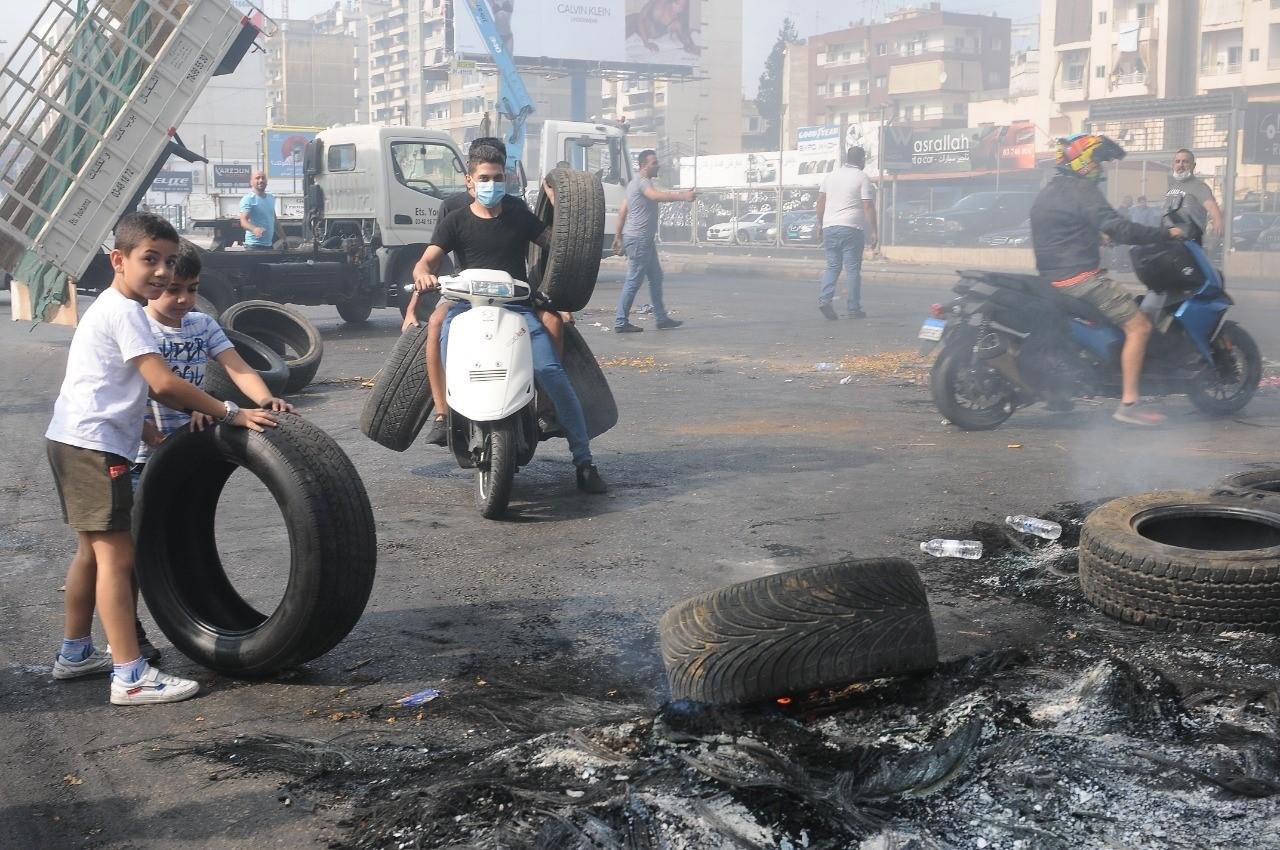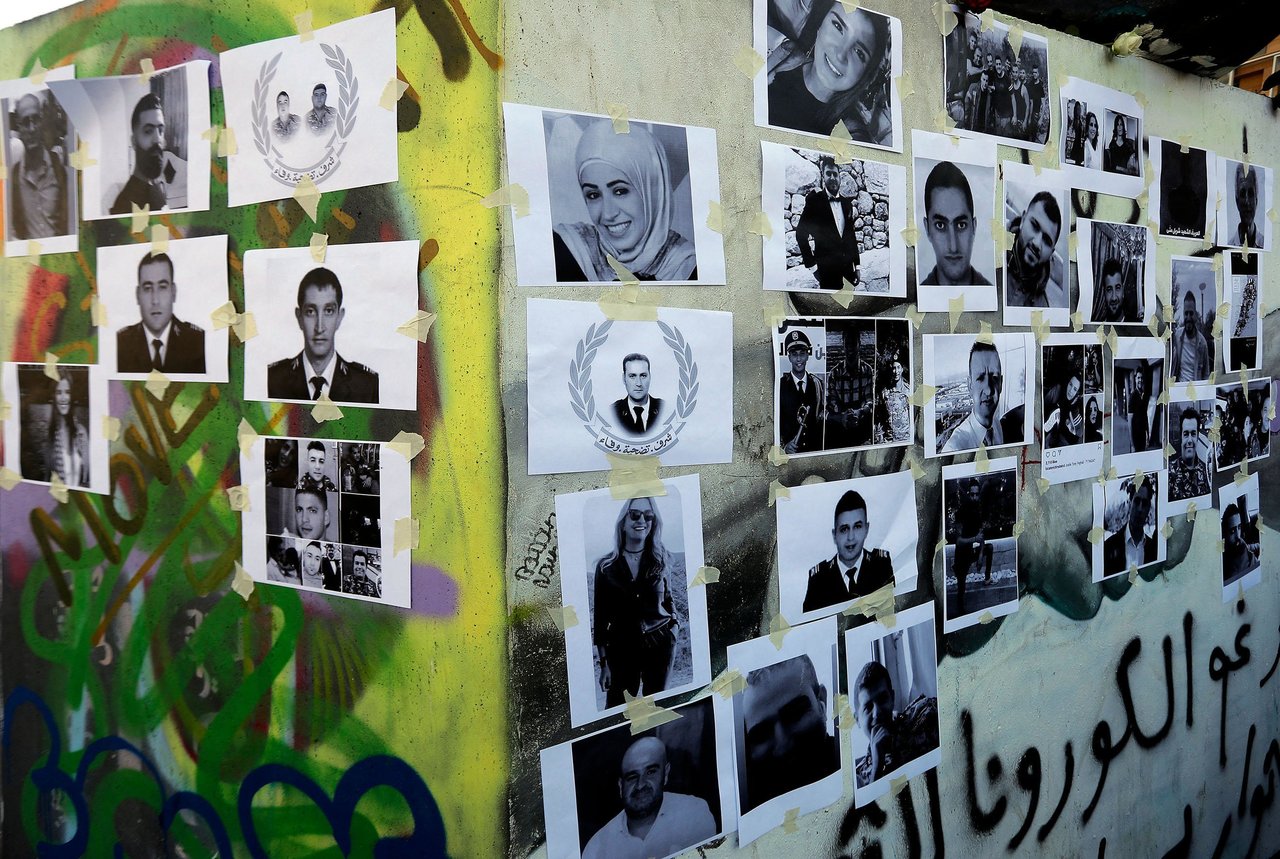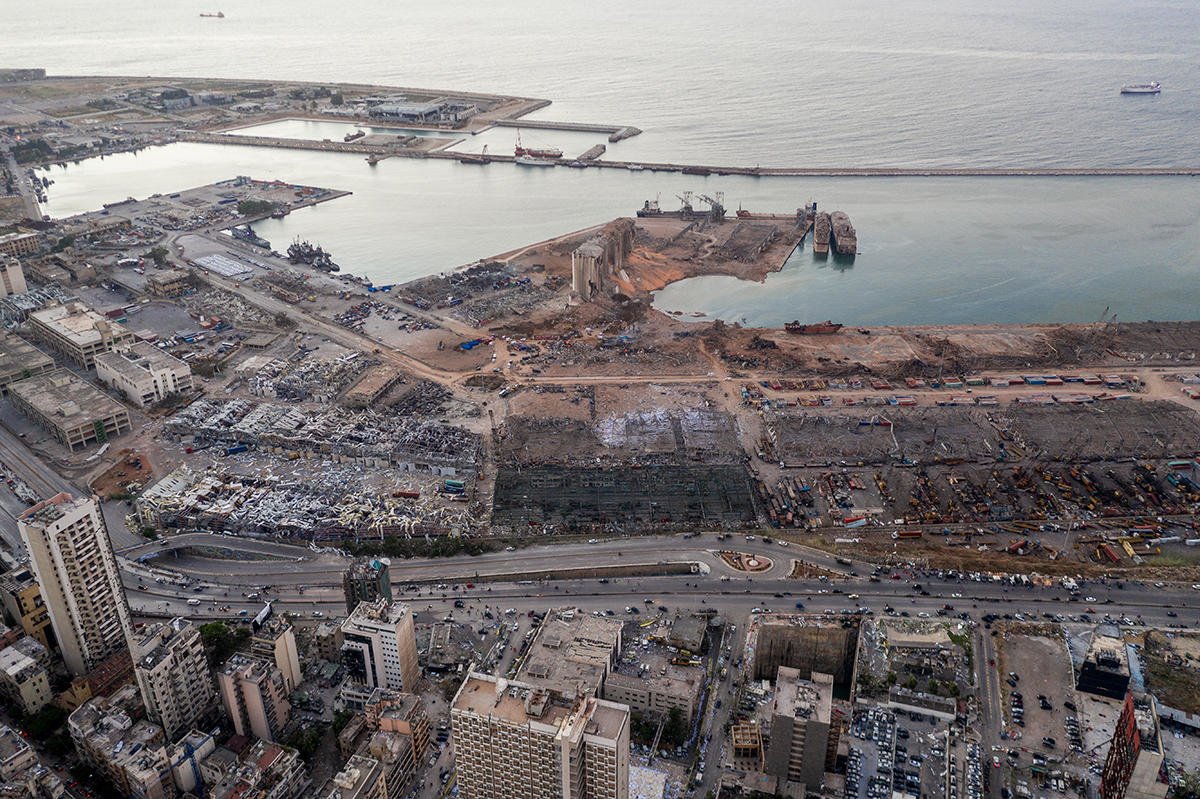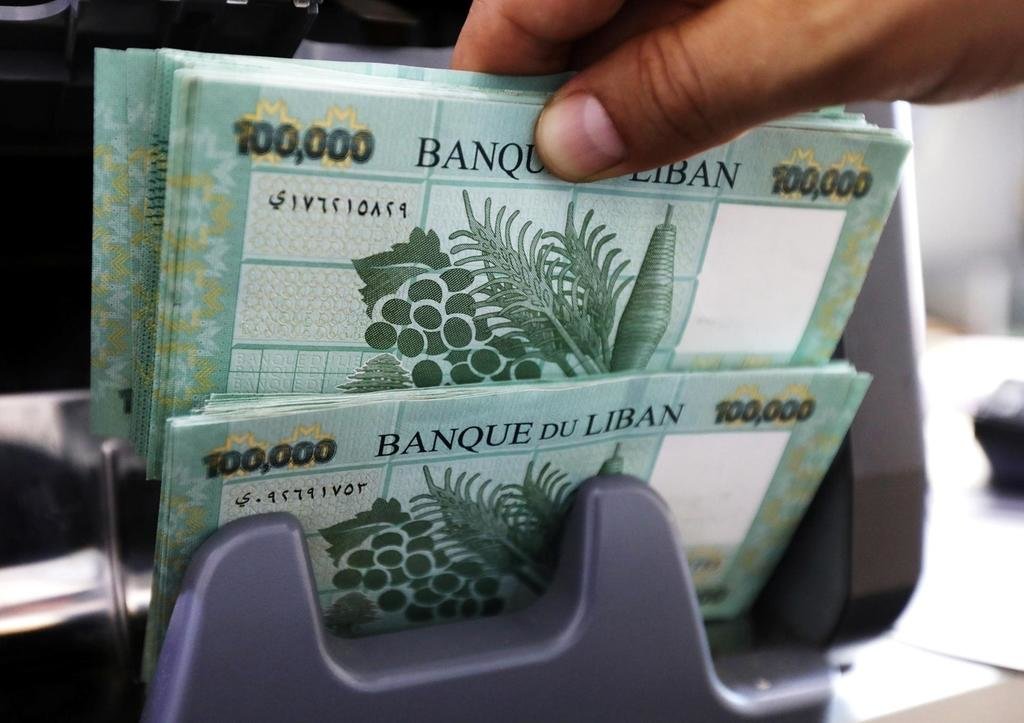
One year on from the October 17 Revolution: 12 months to forget for Lebanon
Saturday marks the first anniversary of the October 17 Revolution, which erupted in Lebanon a year ago after decades of corruption and economic mismanagement that left Lebanon succumbing to the world's highest debt-to-GDP ratio.
It aimed to remove all governmental representatives and create a technocratic government elected by the people and for the people and abolish all sectarian parties.
But nothing changed for the better, in fact things worsened, and today Lebanon still has no government to confront the worst emergency it has faced since the 1975-90 civil war, as rival political factions fail to agree on how to divide power.
Despite shaking the political elite, the revolution failed to achieve its goals.
Rescuers worked through the night into Wednesday after two enormous explosions ripped through Beirut's port, killing at least 78 people and injuring thousands, as they wrecked buildings across the Lebanese capital.
Here, Arabian Business looks back at the past 12 months in what has been one of the worst years in Lebanon's long history.
October 16, 2019: Wildfires engulfed the iconic Lebanese mountains. People died fighting the flames. While Lebanon had access to three firefighting helicopters, they were non-operational due to unwillingness to fund maintenance by the government. The fire that ravaged their lands, in turn, had lit a fire inside the Lebanese people.
October 17: The government announced a new WhatsApp tax in order to generate money for Lebanon’s 2020 budget. The Lebanese people finally took to the streets, and by 11pm the same day, the WhatsApp tax had been scrapped.
October 18: The public sector went on strike. Roads were blocked. Thousands of protestors took to the streets from Beirut to Saida, Tyre, Nabatiyeh, Jbeil, Tripoli, and Baalbeck. A cabinet meeting that was supposed to take place that day was cancelled by Prime Minister Saad Hariri, asking instead for 72 hours to come up with answers.
October 19: Schools, banks, offices and shops remained closed. People were on the streets at all hours. It is said that 1.5 million people gathered in mass protests, the biggest revolution Lebanon had ever seen.
October 21: Day 5 of the revolution and Prime Minister Hariri’s 72 hours were up. His much-awaited speech promised reforms such as cutting down politicians’ salaries by 50 percent, supporting the poor, improving electricity and fighting corruption as well as replacing stolen public funds. Protestors asked why the government hadn't taken action years ago as they watched their people suffer and national debt accumulate day by day.

October 24: President Michel Aoun presented a live televised speech. He assured protestors that their voices will be heard and offered to meet with representatives of the protests.
October 25: Hassan Nasrallah, secretary general of Hezbollah, applauded protestors for achieving the reforms they fought for, but also hinted that leaving the country in its current state of tension for an extensive time could lead to a civil war.
October 27: Protestors formed a human chain across the whole of Lebanon. The chain ran 105 miles long, passing through Beirut, all the way to Tripoli and Tyre.
October 29: Hariri resigned from post of Prime Minister, at the request of protestors.
November 1: Nasrallah gave a televised speech for the first time since the resignation of Hariri, saying that while the government and the country may collapse, Hezbollah will still pay the salaries of the resistance.
November 12: Aoun reiterated his warnings that protests in the streets would lead to economic collapse Following tension after protesters blocked a road in Khalde, a military officer shot a man, Alaa Abu Fakhr, in the head and he later died.
November 19: Banks reopened after 10 days of strike with soldiers deployed in front of each branch, with new measures imposed on all accounts. A weekly cap of $1000 was set on all outgoing transfers and cash withdrawals.

November 21: Aoun, in a televised speech marking Independence Day, reiterated the need for dialogue with protesters. Following the speech, protesters blocked The Ring Bridge and chanted against him.
November 25: Dozens of men headed to the Ring Bridge on Sunday night, chanting slogans in support of Hezbollah and Amal Movement. They hit protesters and threw rocks at them, and damaged and looted dozens of tents, cars, and shops in the surrounding area. Roadblocks were set up across the country.
November 26: Caretaker Prime Minister Hariri withdrew his name from consideration for the premiership.
December 3: Samir Khatib, executive vice president of engineering company Khatib & Alami, met with several officials, seemingly securing his candidacy as Prime Minister. Five days later, he withdrew his candidacy, backing Hariri instead.
December 17: Amal Movement and Hezbollah supporters swarmed downtown Beirut where they torched cars, lit tyres on fire, and hurled stones at the police who in turn dispersed them with tear gas. In Nabatiye, Baalbeck, and Sidon, assailants ambushed protest sites, burning tents.
December 18: Hariri announced that he will not be accepting the candidacy for the premiership.
December 19: Hassan Diab, former Education Minister, was able to secure 69 votes by MPs during parliamentary consultations paving the way for his designation as Prime Minister. But Diab did not gain the support of the people.
January 12, 2020: Protesters target politicians.
January 14: Protesters marked the Week of Anger by blocking roads nationwide.
January 21: A new government was announced at Baabda Palace. Most of the ministers were backed by the March 8 Alliance. The formation of the government ignited further protests.
February 3: Lebanese banks capped depositors’ withdrawal limit by 50 percent.
February 11: 63 parliament members gave Diab’s government their vote of confidence.
February 16: Protester Ahmad Tawfiq passed away, three months after being shot in the stomach during a crackdown by the army on protests in Tripoli.

February 18: The Syndicate of Owners of Restaurants, Clubs, and Pastry Shops in Lebanon announced that 785 food and beverage companies shut down between September 2019 and February 2020, resulting in more than 25,000 lay-offs.
February 21: Health Minister Hamad Hassan announces that a woman who arrived from Iran was carrying coronavirus. After the spread of coronavirus, the protests faded. Al-Nour Square, the heart of Tripoli's revolution, was reopened on April 11 and thousands of protesters returned to the streets on May 2.
March 7: The Cabinet unanimously voted to not pay the $1.2 billion Eurobonds due March 9.
May 16: The IMF and Lebanon started remote discussions surrounding the country's economic rescue plan.
August 4: A massive explosion rocked Beirut, caused by the detonation of more than 2,700 tons of ammonium nitrate that had been stored in a warehouse, flattening much of the city's port, damaging buildings across the capital and sending a giant mushroom cloud into the sky. More than 200 people were killed and 6,500 injured, 300,000 displaced.

August 10: Lebanon's prime minister Diab stepped down from his job in the wake of the Beirut port explosion.
August 31: Mustapha Adib was named to form a new cabinet, but announced his resignation on September 26, following a cabinet formation deadlock.
September 1: French President Emmanuel Macron vowed, in his second visit to Beirut in the space of weeks, to push toward a new political pact to reshape the country’s government and implement the necessary reforms to unlock the international aid to Lebanon.

A year on, Lebanon continues to face multiple challenges and a rapidly deteriorating economic and political situation. The Lebanese pound has devaluated by more than 83 percent, causing more uncertainty and panic. Unemployment is estimated to be greater than 37 percent with 55 percent of the population living below the poverty line. Inflation soared above 120 percent and GDP is projected to contract by at least 20 percent in 2020.











